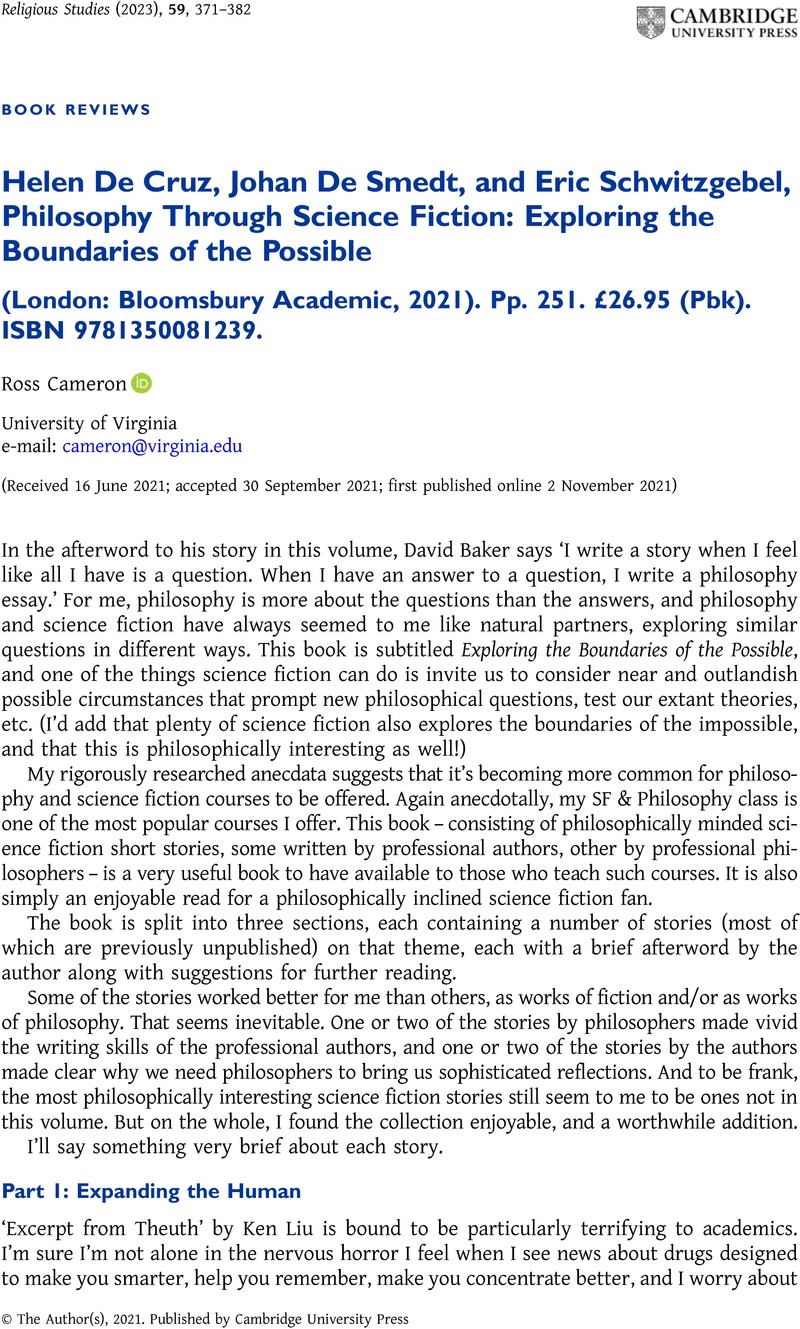No CrossRef data available.
Article contents
Helen De Cruz, Johan De Smedt, and Eric Schwitzgebel, Philosophy Through Science Fiction: Exploring the Boundaries of the Possible (London: Bloomsbury Academic, 2021). Pp. 251. £26.95 (Pbk). ISBN 9781350081239.
Review products
Helen De Cruz, Johan De Smedt, and Eric Schwitzgebel, Philosophy Through Science Fiction: Exploring the Boundaries of the Possible (London: Bloomsbury Academic, 2021). Pp. 251. £26.95 (Pbk). ISBN 9781350081239.
Published online by Cambridge University Press: 02 November 2021
Abstract
An abstract is not available for this content so a preview has been provided. Please use the Get access link above for information on how to access this content.

- Type
- Book Review
- Information
- Religious Studies , Volume 59 , Special Issue 2: Special issue featuring: Shifting perspectives in African philosophy of religion , June 2023 , pp. 371 - 373
- Copyright
- Copyright © The Author(s), 2021. Published by Cambridge University Press



